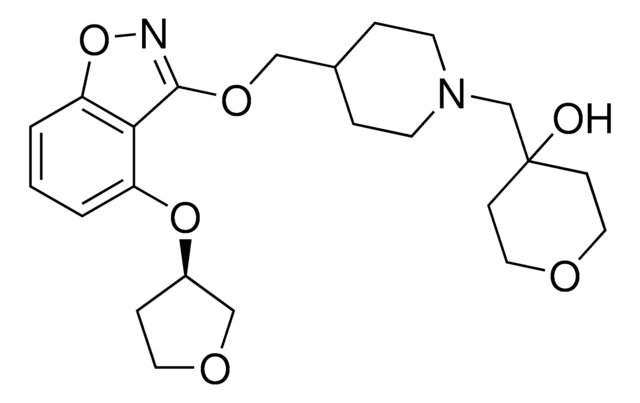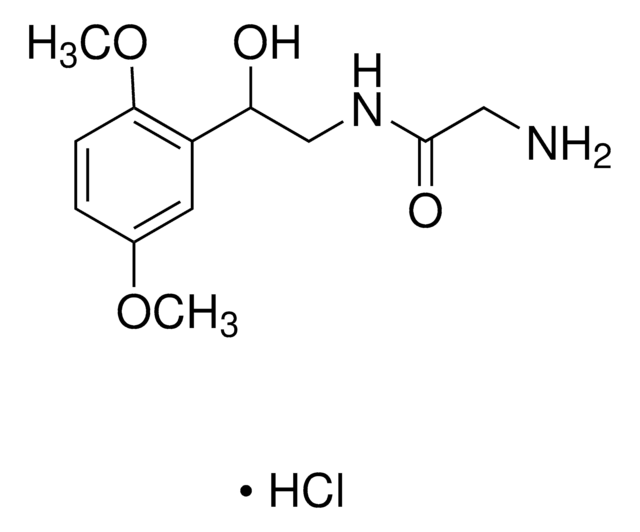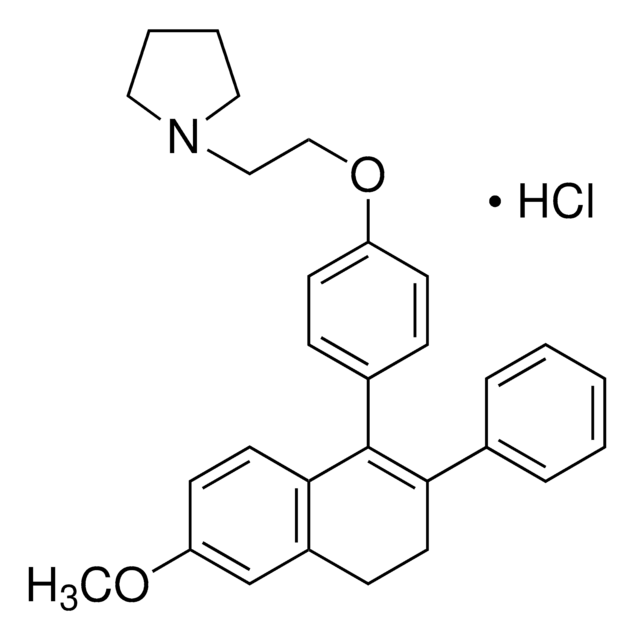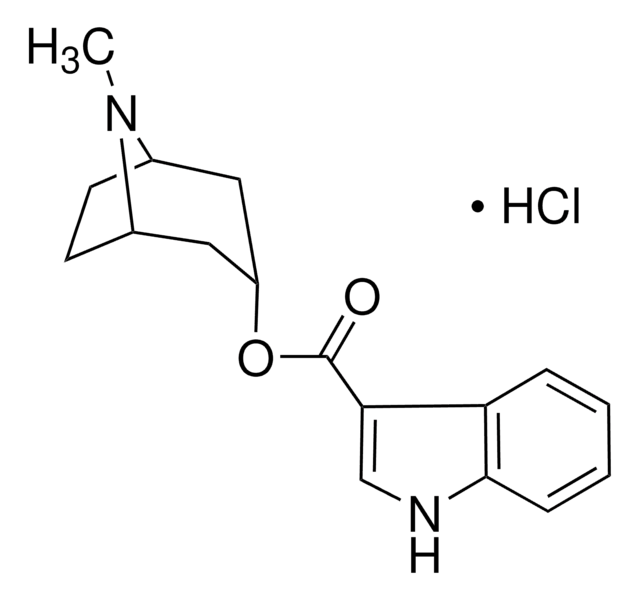C223
Cirazoline hydrochloride
solid
Synonym(s):
2-[(2-Cyclopropylphenoxy)methyl]-4,5-dihydro-1H-imidazole hydrochloride
About This Item
Recommended Products
form
solid
Quality Level
color
white
solubility
H2O: >35 mg/mL
SMILES string
Cl[H].C1CN=C(COc2ccccc2C3CC3)N1
InChI
1S/C13H16N2O.ClH/c1-2-4-12(11(3-1)10-5-6-10)16-9-13-14-7-8-15-13;/h1-4,10H,5-9H2,(H,14,15);1H
InChI key
XFRXWLWUUDJHPB-UHFFFAOYSA-N
Gene Information
human ... ADRA1A(148) , ADRA1B(147) , ADRA1D(146)
Application
Biochem/physiol Actions
Features and Benefits
Storage Class Code
11 - Combustible Solids
WGK
WGK 3
Flash Point(F)
Not applicable
Flash Point(C)
Not applicable
Personal Protective Equipment
Choose from one of the most recent versions:
Certificates of Analysis (COA)
Don't see the Right Version?
If you require a particular version, you can look up a specific certificate by the Lot or Batch number.
Already Own This Product?
Find documentation for the products that you have recently purchased in the Document Library.
Articles
Review alpha 1 adrenoceptors as well as their agonists, antagonists, and tissue expression patterns. We suggest several modulators and alternatives for working with a-1 adrenoreceptors.
Review alpha 1 adrenoceptors as well as their agonists, antagonists, and tissue expression patterns. We suggest several modulators and alternatives for working with a-1 adrenoreceptors.
Review alpha 1 adrenoceptors as well as their agonists, antagonists, and tissue expression patterns. We suggest several modulators and alternatives for working with a-1 adrenoreceptors.
Review alpha 1 adrenoceptors as well as their agonists, antagonists, and tissue expression patterns. We suggest several modulators and alternatives for working with a-1 adrenoreceptors.
Our team of scientists has experience in all areas of research including Life Science, Material Science, Chemical Synthesis, Chromatography, Analytical and many others.
Contact Technical Service








